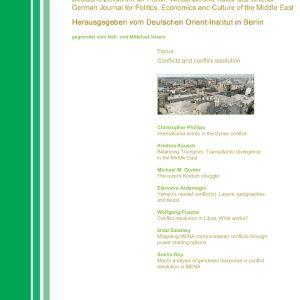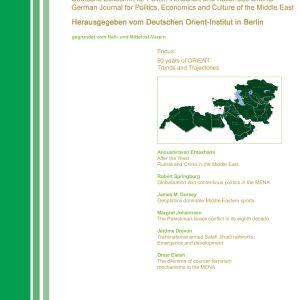Shop
Showing 257–272 of 349 resultsSorted by latest
-

Yemen’s nested conflict(s): Layers, geographies and feuds
7,90 €incl. VAT
Add to basket -

The recent Kurdish struggle
7,90 €incl. VAT
Add to basket -

Balancing Trumpism: Transatlantic divergence in the Middle East
7,90 €incl. VAT
Add to basket -

International actors in the Syrian conflict
7,90 €incl. VAT
Add to basket -

Orient II 2019
26,00 €incl. VAT
plus Shipping Costs
Select options This product has multiple variants. The options may be chosen on the product page -

Orient I 2019
26,00 €incl. VAT
plus Shipping Costs
Select options This product has multiple variants. The options may be chosen on the product page -

The dilemma of counter-terrorism mechanisms in the MENA
7,90 €incl. VAT
Add to basket -

Transnational armed Salafi Jihadi networks: Emergence and development
7,90 €incl. VAT
Add to basket -

The Palestinian-Israeli conflict in its eigth decade
7,90 €incl. VAT
Add to basket -

Geopolitics dominate Middle Eastern sports
7,90 €incl. VAT
Add to basket -

Globalisation and contentious politics in the MENA
7,90 €incl. VAT
Add to basket -

After the West: Russia and China in the Middle East
7,90 €incl. VAT
Add to basket -

Economic deprivation, political de-legitimacy and the rise of new citizen movements in the MENA region
7,90 €incl. VAT
Add to basket -

Solid waste management in the MENA region: A comparative analysis of Lebanon, Jordan, and Tunisia
7,90 €incl. VAT
Add to basket -

Strategic policymaking and Germany’s MENA aid programme
7,90 €incl. VAT
Add to basket -

Autocracy, democracy and populism in the Arab region with reference to Tunisia
7,90 €incl. VAT
Add to basket



